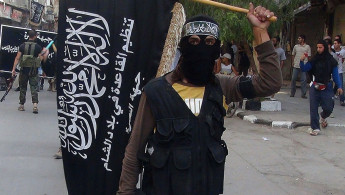A blood-soaked message from Nusra to Lebanon
The Nusra Front's attack in Tripoli sends a blood-soaked message that it is still capable of causing mayhem in Lebanon.
This has the potential to be the start of the Syrian al-Qaeda affiliate's third wave of suicide attacks after the first in 2013 which culminated in the double-bombing of the Iranian embassy, and the second that started last June.
They have not been able to attack with impunity, however. Indeed Lebanese authorities, backed by westerns spy agencies, have prevented several attacks and dealt severe blows to the group in Tripoli and beyond.
But Nusra has shown that while it may have suffered setbacks, it is not out of action.
The attack on Saturday night targeted a cafe in the Jabal Mohsen neighbourhood in the Alawite-majority city, killing nine and injuring more than 30. Suicide bombers wore explosive vests and detonated them minutes apart.
| Lebanese prime minister condemns deadly suicide attack in Tripoli. Read more here. |
The two attackers were named as Taha Samir Khayyal, 20, and Bilal Mohammad Marayan, 28, both of whom lived in Mankoubeen, an area adjacent to Jabal Mohsen.
Khayyal was known to Lebanese authorities having been held in custody for three days in early 2014 and fleeing Lebanon when called back for further questioning. It was at this point he is believed to have joined Nusra in Syria, and moved between the two countries several times.
The path of Marayan, however, was far less linear. Sources who knew him painted a picture of a drifter with drink and drug problems who frequently changed jobs, which included working on a market stall and as an office dogsbody.
According to the sources, the two men were trained in Syria’s Qalamoun by Nusra - showing that the road between Syria’s Qalamoun and the Lebanese territory remains very much open for fighters, despite the pronouncement of the Lebanese army and government.
| Mankoubeen is one of the poorest areas in Tripoli. Most of the houses are tin constructions built in the 1950s. |
Indeed, the sources said that more than 120 young men are believed to have travelled from Mankoubeen to Syria and joined the Islamic State group and Nusra - all of them potential suicide bombers.
A religious leader in Tripoli said that there are currently no young men in Mankoubeen. "Most of them are either in prison or in Syria," he said.
Mankoubeen is one of the poorest areas in Tripoli. Most of the houses are tin constructions built in the 1950s as temporary accommodation for those affected by flooding.
One study, conducted by the Future Movement coalition, suggested that $5m could give Mankoubeen proper houses, infrastructure and parks, and offer job opportunities for young people. However, that study appears to have been ignored.
The Lebanese government declared victory over extremist infiltrators from Nusra after battles in Tripoli last October that led to dozens of deaths and hundreds of arrests.
But that declaration seems hollow in the aftermath of the latest Nusra attack.
| Lebanon imposes tough restrictions of Syrian refugees fleeing civil war. Read more here. |
The group's first wave of suicide bombings in 2013 stopped after the Qalamoun road was cut off through al-Tufail and Arsal, according to the Lebanese interior minister, Nouhad Machnouk. The second wave ended because it depended on non-Lebanese fighters.
Today, however, Nusra is using local recruits. Eliminating them requires significant internal security efforts and a political will.
Previous waves of bombings began during an atmosphere of tension between Hizballah and the Future Movement.
The first came against the backdrop of a government formation and the second during the dispute over electing a president of the republic.
This time, the bombing came after two sessions of talks between Hizballah and the Future Movement, talks which are crucial to secure political legitimacy for Lebanese security operations.
The last visit to Tripoli by the movement's secretary general, Ahmad Hariri, weeks ago highlighted the dwindling popularity of the coalition in the city.
This twin suicide bombing on Saturday should bring back to mind that the "war on terror" can’t be fought with guns alone. The pressure felt by Lebanese society, and the current pressure on Syrian refugees, will produce more suicide bombers.
What is needed is for dialogue to continue, and for all sides to be unshaken by this latest outrage.



